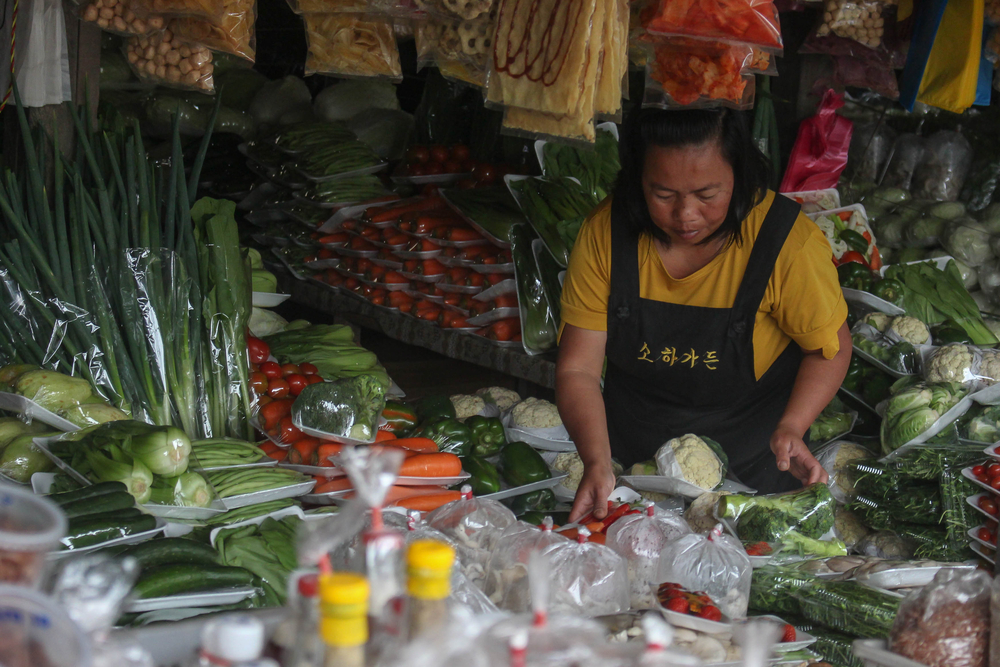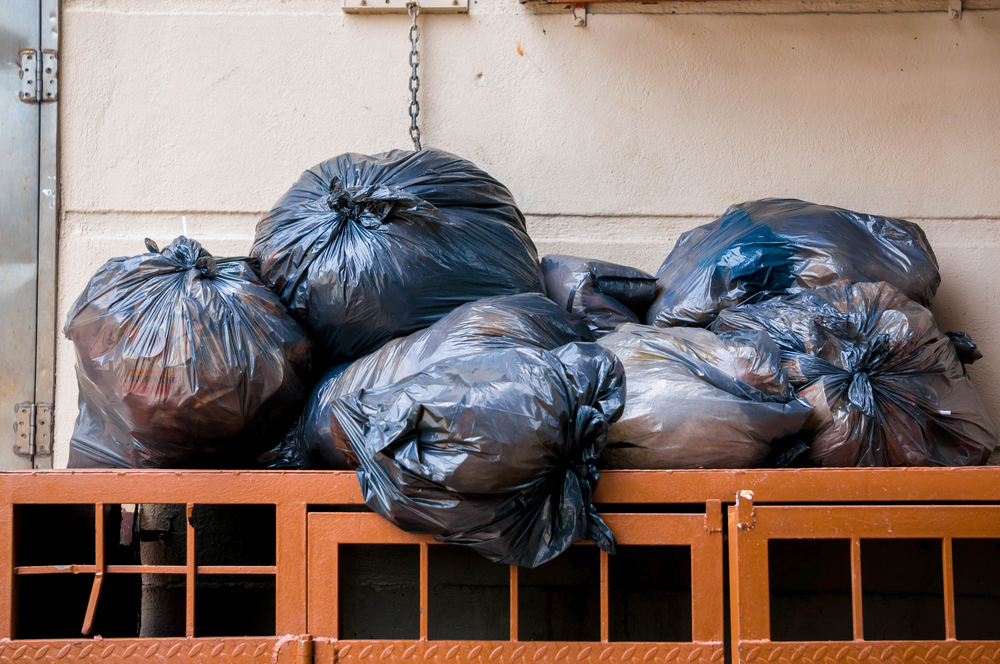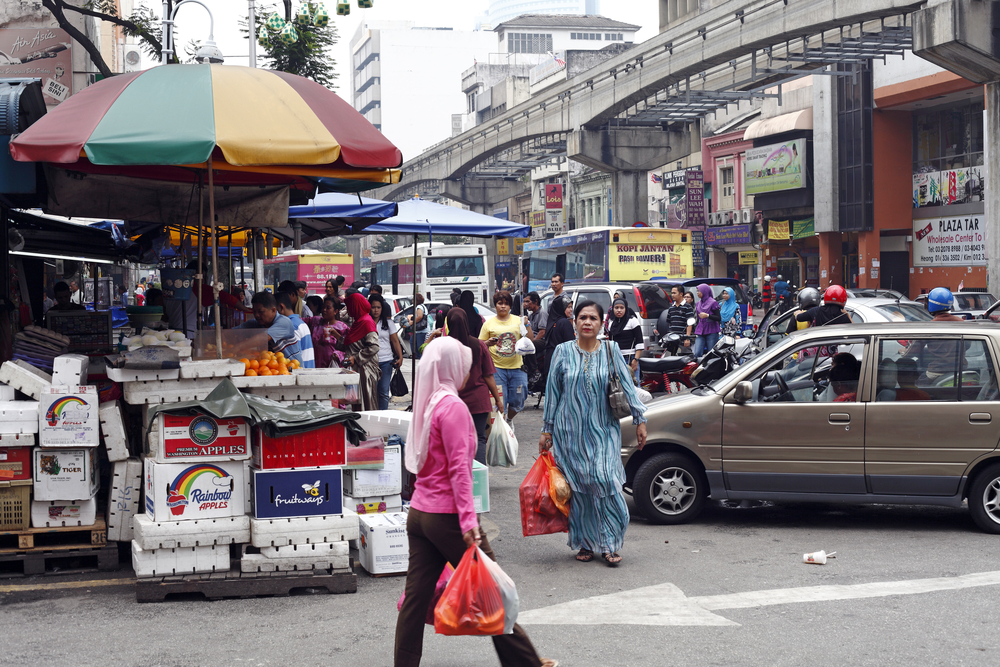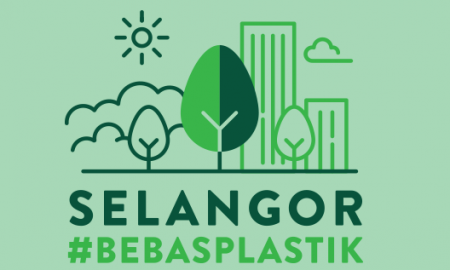If you live in Greater Kuala Lumpur, you’ve already likely been impacted by the so-called ban on plastic bags. While it certainly seems like a laudable measure to have enacted, TEG Group Editor Chad Merchant takes a closer look and finds the reality is much more complicated.
On January 1, Selangor state instituted what is being widely called a ban on plastic bags and polystyrene containers. On its face, this seems like a very good idea. After all, petroleum-based plastic bags can purportedly take hundreds of years to break down in a landfill, and far too many of them end up not there, but in our waterways and oceans. So a ban on plastic bags must surely be really good, right?
Well, not so fast. As with so many things – particularly when it comes to public policy – what looks nice on a marketing poster or sounds good at a press conference often breaks down upon careful review, showing that reality is much more complex than clever sound bites or PR slogans.
First, let’s be clear: I am an environmentally conscious consumer. I recycle. I reuse. I actively make efforts to reduce waste and its impact on the environment. Even without being prompted by the government, I frequently use canvas bags and reusable containers for lunch, shopping, etc. I am the person you’d think would be most in favour of a plastic bag ban. So why do I think Selangor’s campaign bears a closer look?
It’s not a ban in any sense of the word
This is a key point. And to be fair, Selangor never presented it as a ban, but rather bebas plastik or ‘plastic-free.’ Media took off with the ‘ban’ term – which it clearly isn’t. Plastic bags are still very much available, anywhere and everywhere. The only difference is that now you must pay for them. And that brings us to the second point.
This campaign disproportionately affects low-income consumers
If you are earning a good salary, paying an extra ringgit for five bags each time you go to the grocery store will not be much of a burden for you at all. In fact, in all your various shopping trips combined, if another RM8-10 is added to your total expenses each month to pay for plastic bags, you may not even notice the impact (nor would you necessarily reduce your usage). But for the poorest consumers, who have to live on extremely tight budgets, the bag fee can result in a very real burden. People who are living pay cheque to pay cheque and struggling to make ends meet will be disproportionately impacted by a plastic bag fee.

Ironically, it’s low-income consumers who are most likely to reuse plastic bags
It’s a glaring truth: the wealthy waste more than the poor. In every society, and across all economic lines, this tends to be the case. With increased income comes increased consumption, and with increased consumption comes increased waste. Low-income consumers are much more likely than their wealthier neighbours to reuse those plastic bags again and again. So the campaign negatively affects the wrong economic segment right from the start.
Plastic bags actually get reused across the economic spectrum
Though low-income consumers are more likely to reuse things in general, and to reuse them more times, the fact is plastic bags are fairly widely reused at least once by nearly everyone, anyway. One study suggested that 80% of consumers will reuse their plastic bags at least once, though this of course depends on the bag’s size and quality. A thin bag that’s torn at the seam by the time you get it home is unlikely to be reused for any purpose, but intact bags are frequently and widely reused for rubbish. Without a plastic bag from the store, consumers will turn to purchasing boxes of plastic garbage bags.
Once again, the low-income consumers are the most affected, and once again, the plastic bag ends up in a landfill, but this time after just one use. It’s also worth noting that purchased garbage bags are invariably made from a denser, heavier plastic than the typical grocery store bag, so they will take up more space in a landfill and take even longer to decompose. At best, this is a zero-sum game, but at worst, you can see that this approach may ultimately even be worse for the environment.
The data on whether bag bans actually work is inconclusive
Though some communities have recorded a measure of success, it’s by no means a given. According to studies conducted by Scotland’s government and investigative reporting by The Washington Post, bag bans and bag fees don’t meaningfully reduce the amount of waste going into landfills. Without freely available plastic grocery bags, people simply purchase alternative bags or use other options – often heavier, thicker plastic – and end up sending those bags to landfills. Though data from studies indicate a reduction in the number of bags initially being given out by retailers, the impact on waste going to landfills is much less clear.
Bag fees in American cities (usually 5¢ per bag, similar to the RM0.20 charged here) aren’t really doing much good, either. Unlike Selangor, which simply allows retailers to add the revenue from the bags sold to their bottom line – though it “encourages” them to divert those funds to charitable causes – the funds rising from the bag fees in Washington, D.C. were specifically earmarked for area river clean-up. In five years, about $10 million in fees was collected, one nickel at a time.
Check the math: that’s 200 million plastic bags sold – well over 100,000 bags every single day on average in just one medium-sized city! (And you thought bag fees would result in reduced usage!) And the Post’s review of the spending of the funds showed a murky picture at best, with questionable improvement in the condition of the river the money was meant to help.
So here in Malaysia, how will this bag fee revenue be used? If it’s simply to pad the retailer’s bottom line, I can’t see how that helps the environment at all. And even if it’s required to be put to environmental use, that’s no guarantee the money will be well-spent or that it will get meaningful results.
Some countries’ results suggest that bag fees do have a positive result, at least in the short-term. However, in nearly all cases, these countries require those fees to be put to campaigns for clean-up, education, or charitable endeavours. So it’s not that bag fees are inherently bad – they’re certainly not, and they can indeed get consumers to at least think about plastic bags, and encourage their reuse. If properly managed, bag fees can certainly be part of a very useful campaign. But in and of themselves, studies show they’re simply not always the solution they appear to be, despite the “feel-good” factor.
Alternatives to plastic bags aren’t always so good, either

And if you think the ubiquitous cotton shopping bag is an easy solution, that’s a mixed bag, too (no pun intended). Studies by the UK’s Environmental Agency show that these bags need to be used a whopping 131 times to ensure they have a lower global warming impact than a standard plastic bag that’s used only once. And as we know, most people use their plastic bags at least twice.
Sometimes, plastic bags are quite simply the best choice. Selangor has recognised this and subsequently exempted some bags from the new fee, such as plastic bags for raw meat, plants and roots covered in sand or soil, flowers, unwrapped loose seeds, prescriptions and poisonous substances, and live fish or aquatic products. However, at one area grocer (at least), this exemption is not being honoured, with RM0.20 being charged for all bags, even the small ones used to wrap packages of raw meat. So good luck getting that raw chicken juice out of your eco-friendly cotton bag (and off all your other groceries).
Paper bags? Nope. Though popularly considered to be a more environmentally friendly alternative, the life cycle of a paper bag is actually just as bad as plastic, if not worse. Compared to plastic, making a paper bag emits 51% more global warming gases, creates 50 times more water pollution, uses four times more raw materials, and consumes twice as much energy. And once used, the paper tears easily, becomes useless if it ever gets wet, and is unlikely to be reused many times. They’re not as readily biodegradable as we like to think, either, often taking decades to fully degrade in landfills, and costing more to put there as they take up more space by weight and volume.
Okay, I’m convinced. So what’s the solution?
Thoughtful government policymaking is certainly part of it. As responsible as they seem on the surface, these blanket bag bans and bag fees (especially when those fees simply enrich retailers) are not always as helpful as they may appear, though they can be effective when implemented in conjunction with a well-communicated education campaign. And perhaps the most important message is this:
At all levels – individual, household, community, city, state, and country – strive to adopt the REDUCE • REUSE • RECYCLE mindset.
This really is the key driver of making a positive impact on the environment, and it should be followed in this order of importance. If putting recycling last sounds fishy, consider that it’s the only one of the three points that involves a cost – and usually a high cost. Reducing our usage and reusing our resources? Those are free. Government can do its part by educating and promoting this mantra, but consumers must adopt it into their lives for it to really make a positive impact.

REDUCE: Can your groceries fit into four bags instead of six? If so, make the change. With this simple act, you’ve reduced your plastic bag usage by 50%. Do you really need the counter girl at McDonald’s to put your drink into a plastic bag? If not, tell her. Every little bit helps, and if enough people make reducing their usage of plastic bags part of their daily routine, it really adds up.
REUSE: Make a conscious effort to reuse plastic bags and other plastic goods. Even if you reuse it only one time – whether it’s a bag, a bottle, a take-out container, or a straw – you’ve doubled the life cycle use of that piece of plastic and eliminated the need to produce and use another similar item. Keep a small supply of grocery store plastic bags in your car, then when you shop, simply reuse them. Most bags can be used many times before becoming unusable. Remember, the worst offenders of plastic waste are the items that are used only one time, then discarded. If you reuse your plastic consumables, you are making a positive difference.
RECYCLE: Not all plastic can be recycled, but quite a bit of it can. Rather than tossing it out with all your other rubbish, set it aside for recycling. Find recycling collection centres nearby and make the effort to take your plastic cast-offs for recycling and give them second life rather than condemning them immediately to a landfill.
By all means, don’t merely reduce your usage of plastic bags, reduce your dependence on them, too. Use alternatives when it makes sense, refuse them when they’re unnecessarily offered, and most importantly, reuse them and then recycle them.
See also:
"ExpatGo welcomes and encourages comments, input, and divergent opinions. However, we kindly request that you use suitable language in your comments, and refrain from any sort of personal attack, hate speech, or disparaging rhetoric. Comments not in line with this are subject to removal from the site. "
























It’s helpful for readers to fully read an article before commenting on it.
Point in case, this comment: “What is key, is providing sustainable alternatives so that people need not struggle or be inconvenienced. This could be achieved through legislation or further negotiation with hyper-marts to use the revenue from plastic bags. I find ExpatGo incredibly irresponsible to suggest such rulings as redundant.”
Yet, from the article: “Some countries’ results suggest that bag fees do have a positive result, at least in the short-term. However, in nearly all cases, these countries require those fees to be put to campaigns for clean-up, education, or charitable endeavours. So it’s not that bag fees are inherently bad – they’re certainly not, and they can indeed get consumers to at least think about plastic bags, and encourage their reuse. If properly managed, bag fees can certainly be part of a very useful campaign.”
The article suggests that there is more complexity to the issue than most people think about — not that bag bans or bag fees are a bad idea. Moreover, studies from three separate countries are referenced, so it’s not an “empty piece” as Mr Pierre states. Please read the entire article, then join in the discussion.
It IS a great idea because it’s not possible to ban it entirely. (There will be times when people simply just forget to bring!)
Applying a charge means people will only take what they need! So instead of using 5 bags and taking 2 “extras” home, users only use 2 bags to cramped everything in.
This is also a start to creating awareness.
http://www.bbc.co.uk/news/science-environment-36917174
Wales introduced a levy in 2011, followed by Northern Ireland in 2013 and Scotland in 2014. They saw reductions in bag use of 76%, 71% and 80%, respectively, in the first year after the fee was established.
A populist article, just to get more visits and likes. Hope you didn’t waste too much time writing this empty piece.
Charge for bags every day, not just on a Saturday. One day a week isn’t enough to get people to start changing their culture.
The suggestion that people will buy bulk plastic bags and bring them to the supermarket seems ludicrous.
Just earlier today I saw an elderly Subang Jaya couple placing unbagged items into the back of their square-body Saga. Obviously they had decided twenty sen, multiplied over the four or five bags they would have required, too much to spend. And fair enough, considering you can still get karipap, sate or roti canai for around one ringgit. But regardless, this proves that the system works.
What is key, is providing sustainable alternatives so that people need not struggle or be inconvenienced. This could be achieved through legislation or further negotiation with hyper-marts to use the revenue from plastic bags.
I find ExpatGo incredibly irresponsible to suggest such rulings as redundant.
Hi Scott, thanks for writing.
With regard to this from your comment — “What is key, is providing sustainable alternatives so that people need not struggle or be inconvenienced. This could be achieved through legislation or further negotiation with hyper-marts to use the revenue from plastic bags.”
We would refer you to this excerpt from the article, which suggests that we are, at least on this point, in agreement: “Some countries’ results suggest that bag fees do have a positive result, at least in the short-term. However, in nearly all cases, these countries require those fees to be put to campaigns for clean-up, education, or charitable endeavours. So it’s not that bag fees are inherently bad – they’re certainly not, and they can indeed get consumers to at least think about plastic bags, and encourage their reuse. If properly managed, bag fees can certainly be part of a very useful campaign.”
We would also point out that one anecdotal observation doesn’t prove anything. If you saw a customer leaving Tesco with a dozen freshly purchased plastic bags in her cart, would you say that “proves” the scheme DOESN’T work?
Elaine Loo
All around PJ shops and stalls still give bags out for free. If the shops don’t stop, where’s the incentive?
Sweden has not banned the plastic bag …. they have however charged more for them, provided reusable alternatives and recycled the hell out of everything. And it is working …. so if that is the aim of this ‘not a ban’ here … it is a step in the right direction.
They are banned in Australia… Supermarkets make a fortune charging 20 cents for a 2 cent bag. Even worse, they sell fabric bags at $2 each. Everytime you forget your bags… $$$$ they make money!!
That’s a good incentive not to forget your bags.
So don’t forget your bags…
charging for bags just add costs for the consumer.
but the less plastic we use the better. and the less plastic the producer wrap our items in it’s even better.
in Melaka the supermarkets has banned the bags. but it only happened after a years trial of bagfree days. a good way to make us aware of what was to come in the future
So we just do nothing? And wait for society to see the greater good on their own – hope it isnt too late… oh wait it already is! The article merely undermines the best efforts of others – the article starts by being snide about the policy makers marketing and finishes by trying to sell its own three word mantra. A speeding fine unproportionally effects the poor (any fixed fine is the same) but it generally deters speeding! The article also avoids the topic of polystyrene trays which are hardly ever reused by anyone and are in overwhelming supply in Asia. Every little helps.
Good news: polystyrene is also banned in Selangor.
I agree. The writer hasn’t got his/ her mindset right. A lot of the points are really invalid
Der
Yes, the charges for plastic bags in UK has make people use their own bags and has cut down the use of new plastic bags enormously .
The charges for plastic bags in the UK caused people to start using their own bags cutting use of plastic enormously
HKG has been doing that for 5+ years
You don’t need to go that far. Penang has done it for over 5 years.
I bring my bags from home and it will force people to be more proactive. In UK, there is so much plastic bags used, hardly anyone brings bags from home.
I Think it’s ok to not just give away plastic bags, but do as we do at home, have the option for people to buy the plastic bags they need.